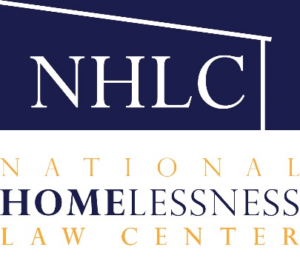NHLC and NHLP Congratulate American Bar Association on New Policy for Residential Eviction Laws
The National Homelessness Law Center and the National Housing Law Project congratulate the American Bar Association in passing “ABA Ten Guidelines for Residential Eviction Laws.” The Resolution was passed Monday, on Valentine’s Day, bringing a little love to all the renters across the country.
According to its website, “The ABA is the largest voluntary association of lawyers in the world. As the national voice of the legal profession, the ABA works to improve the administration of justice, promotes programs that assist lawyers and judges in their work, accredits law schools, provides continuing legal education, and works to build public understanding around the world of the importance of the rule of law.”
In recognition that evictions are “high stakes legal matters” and “a core racial justice issue,” the Resolution “urges all federal, state, local, territorial, and tribal legislative, and other governmental bodies to implement the ABA Ten Guidelines for Residential Eviction Laws.” Resolutions reflect the formal policy of the American Bar Association.
Notably, the Guidelines emphasize limiting lease termination to good cause, urge pre-litigation diversion programs focused on maintaining housing stability, call for full, quality representation by an attorney for tenants facing evictions, and support rigorous court case-sealing practices. In the Report that accompanied the resolution, the ABA recognized that “residential evictions are high-stakes legal matters” and that “eviction itself is a core racial justice issue.”
The list of ten Guidelines is below. Please see the Resolution and Report for more detail.
ABA Ten Guidelines for Residential Eviction Laws
- Tenants should receive reasonable notice and an opportunity to cure before facing eviction for a lease violation.
- An eviction court should have emergency procedures for tenants who are locked out or otherwise extrajudicially evicted from their homes.
- No tenant should be evicted without a meaningful opportunity to present proofs and arguments in a hearing and before a trained judicial officer that has the authority to consider any legal or equitable defense.
- A tenant should have an adequate opportunity to prepare for an eviction hearing, including by conducting civil discovery.
- Courts should require landlords and tenants to participate in pre-litigation diversion programs focused on maintaining housing stability.
- No tenant should face eviction without access to full, quality representation by an attorney.
- A tenant facing eviction for nonpayment of rent should have the right to redeem the tenancy by paying off a judgment at any time before an eviction judgment.
- A tenant should have the right to appeal an eviction judgment and without unreasonable bond requirements.
- Lease termination, including non-renewal, should be limited to circumstances where good cause exists.
- A court that hears eviction cases should automatically seal the names of defendants before a final judgment and in dismissed cases, and courts should have practical procedures for sealing or otherwise protecting the privacy of defendants where other good cause exists.
February 16, 2022
Contacts:
Antonia Fasanelli afasanelli@nlchp.org
Deidre Swesnik dswesnik@nhlp.org


